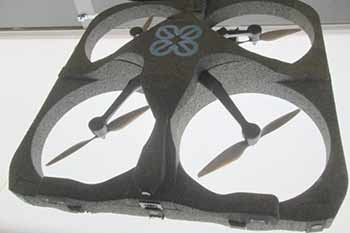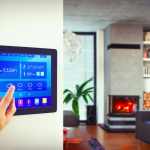Retailers are making use of beacons and innovative payment solutions such as Apple Pay to enhance consumer experience, which will, in turn, increase sales. Tech companies are increasingly experimenting with delivery drones and driverless delivery solutions, which can transform the way we interact with products.
The Rise of Smart Retail
In retail, RFID ceiling readers, smart shelves, digital fitting rooms, and interactive displays are moving past the drafting stages as vendors start to recognize the advantages of better-quality customer service as well as increased revenue from close to one hundred percent inventory accuracy. The Internet of Things (IoT) offers superior levels of personalization and more choice, and it enables customers to lessen the time and effort involved with shopping.
While it builds an atmosphere of efficiency and convenience for customers, smart retail is also helpful to retailers because they get a greater understanding of their customers’ shopping habits. Retailers can make educated business observations and decisions, i.e. implement effective inventory management by finding which goods sell the least or the most, study how store layouts affect buying, better manage logistics and the supply chain, and make use of customer reviews, which will benefit them in terms of client retention and revenue because they understand shoppers better based on the data analytics being gathered through IoT.
Practical Uses of Smart Retail
Retailers can use the Internet of Things (IoT) to get ahead of their competition. The IoT makes it easier to identify problems, and retailers can then decide which technology they will use to solve these problems. The successful retailers of the future will be the ones who recognize and then meet the needs of their consumers. Winning in retail is like a game of chess: it’s essential to look a few moves ahead to stay on top of competitors.
Using Beacon technology to connect via smartphone can help retailers to serve their customers better. IoT also allows retailers to track a consumer’s trail within a store, enabling them to extract data such as where people stop to look at merchandise, and how many people pass through which areas during specific hours, days, weeks, and months. The retailer can then place premium goods in high traffic areas and also improve store layout. The IoT takes advantage of consumers’ smartphones to enable retailers to connect with them even when they leave the store.
Beacon technology also allows retailers to send coupons, promotions, and other material to consumers’ smart devices. The retailer can then build a loyalty program for regular consumers based on shopping history or send specific content to people when they are in front of a shelf.

Companies are envisioning delivery innovations such as drones and driverless delivery vans. Deliveries can come directly to consumers changing traditional retail business models. This can fundamentally transform the way consumers live, eat and enjoy life.
The Importance of the Human Factor and Design in Smart Retail
The danger inherent in smart retail is that the retailer will focus on the different technologies available, and forget about the valued in-store customer experience. If retailers disregard the importance of a positive customer experience then they can lose out on distinguishing themselves and maximizing their success. Another reason why retailers should use the IoT with care: research shows that more than half of all shoppers find that human contact is the most important part of the in-store experience.
Why Smart Retail Market Research can be Useful
Market researchers can also employ the IoT to help them understand consumer behavior and advise retailers on dynamics such as where face-to-face interaction would have the greatest impact. It also helps retailers to pinpoint departments that are being overlooked, and helps them to identify the best locations for advertising boards and other promotional displays.
The companies that embrace smart retail market research will eventually come to know much more about all facets of their business, not only about their products and consumers, but also about their supply chain.



